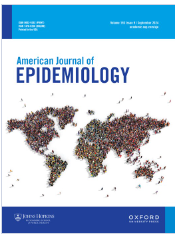Estimating Additive Interaction in Two-Stage Individual Participant Data Meta-Analysis
Authors: Maartje Basten, Lonneke A van Tuijl, Kuan-Yu Pan, Adriaan W Hoogendoorn, Femke Lamers, Adelita V Ranchor, Joost Dekker, Philipp Frank, Henrike Galenkamp, Mirjam J Knol, Nolwenn Noisel, Yves Payette, Erik R Sund, Aeilko H Zwinderman, Lützen Portengen, Mirjam I Geerlings Journal: American Journal of Epidemiology Abstract: Individual participant data (IPD) meta-analysis provides important opportunities to study interaction and effect modification for which individual studies often lack power. While previous meta-analyses have commonly focused on multiplicative interaction, additive interaction holds greater relevance for public health and may in certain contexts better reflect biological interaction. Methodological literature on interaction in IPD meta-analysis does not cover additive interaction for models including binary or time-to-event outcomes. We aimed to describe how the Relative Excess Risk due to Interaction (RERI) and other measures of additive interaction or effect modification can be validly estimated within two-stage IPD meta-analysis. First, we explain why direct pooling of study-level RERI estimates may lead to invalid results. Next, we propose a three-step procedure to estimate additive interaction: 1) estimate effects of both exposures and their product term on the outcome within each individual study; 2) pool study-specific estimates using multivariate meta-analysis; 3) estimate an overall RERI and 95% confidence interval based on the pooled effect estimates. We illustrate this procedure by investigating interaction between depression and smoking and risk of smoking-related cancers using data from the PSYchosocial factors and Cancer (PSY-CA) consortium. We discuss implications of this procedure, including the application in meta-analysis based on published data. doi: https://doi.org/10.1093/aje/kwae325


